Publications
Articles, publications, books, tools and multimedia features from the U.S. Institute of Peace provide the latest news, analysis, research findings, practitioner guides and reports, all related to the conflict zones and issues that are at the center of the Institute’s work to prevent and reduce violent conflict.

Islamic Law, Customary Law and Afghan Informal Justice
As Afghanistan's nascent democracy works to establish the rule of law across the country, it finds itself contending with the ways that Islamic law converges and diverges from the tribal norms that shape the settling of disputes outside Kabul. Based on surveys conducted in Afghanistan, this report examines the points of tension and agreement between Islamic and customary laws, looking into both of their pasts to suggest a way forward for the Afghan state, particularly in granting greater righ...
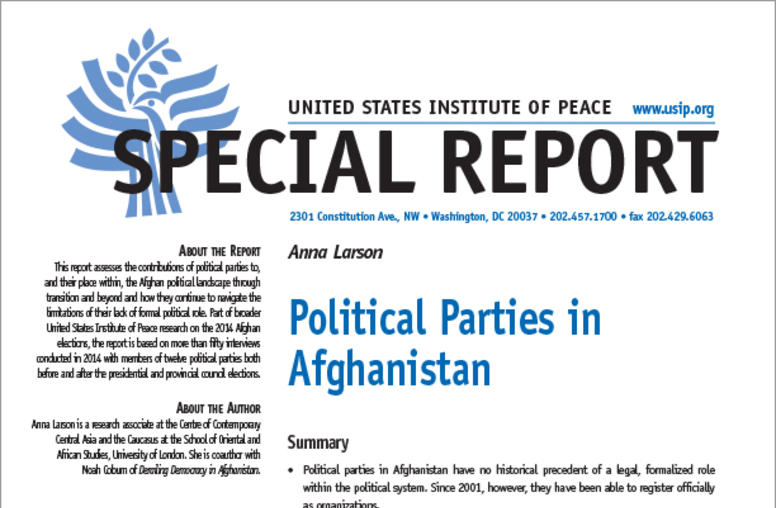
Political Parties in Afghanistan
Political parties in Afghanistan are often dismissed by international and Afghan observers as unruly and highly personalized organizations that contribute little to the democratic process. Yet they continue to play a part in shaping the political landscape, albeit in what might be considered unorthodox ways. This report assesses their history, role, and activities over the last decade and how their future might unfold under and contribute to the country’s new unity government.
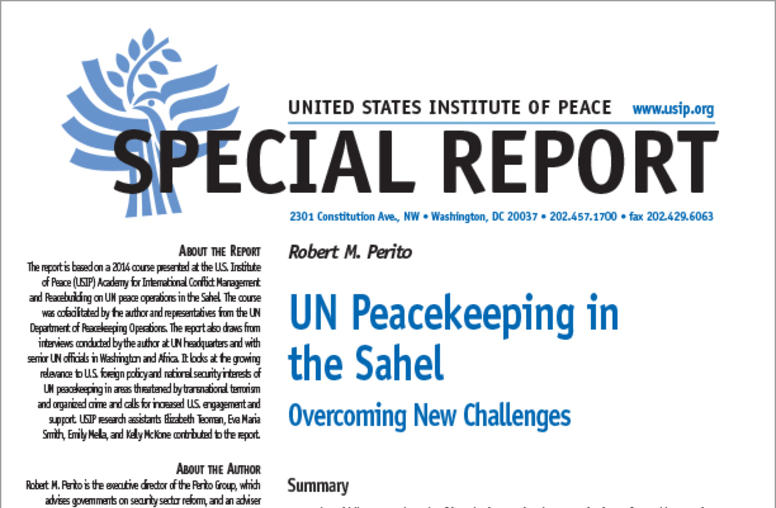
U.N. Peacekeeping in the Sahel: Overcoming New Challenges
New U.N. operations in the Sahel present unprecedented challenges for U.N. peacekeeping. They involve the United Nations directly in the struggle against transnational Islamist terrorism, weapons proliferation, and illicit trafficking by international organized crime. The United Nations must operate in countries with harsh terrain, vast expanses, poor communications, and porous borders. In response, the Security Council adopted more robust mandates based on the peace enforcement provisions of...
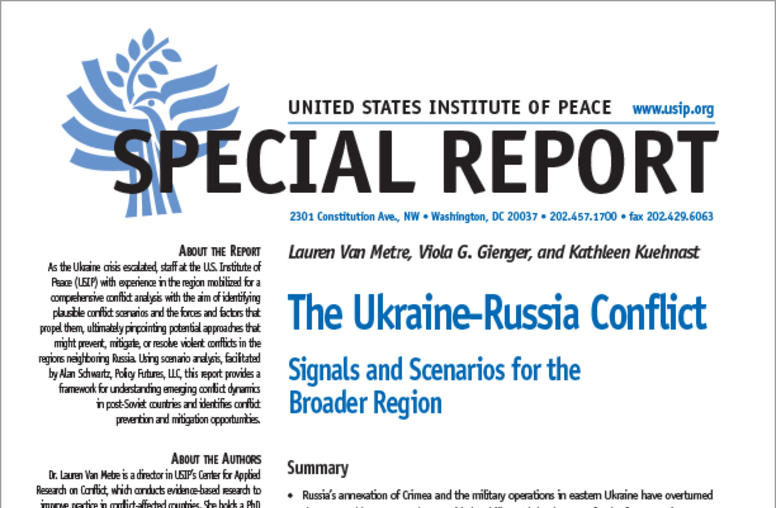
The Ukraine-Russia Conflict
Russia’s annexation of Crimea and its military operations in Eastern Ukraine have overturned the post–Cold War norms that had provided stability and development for the former Soviet countries bordering Russia. As neighboring countries assess their own security situation based on Russia’s aggressive practices in Ukraine and the West’s response, they are actively testing the new contours of Russian and Western engagement, regional alliances and relationships, and regional conflict dynamics.
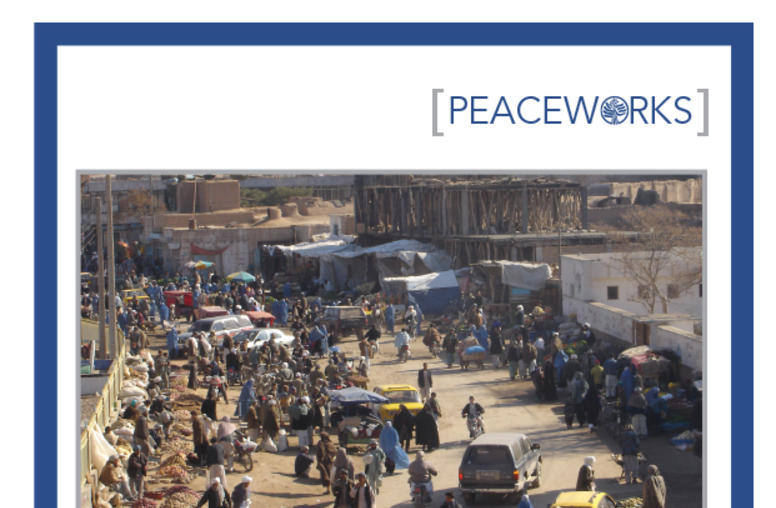
Political and Economic Dynamics of Herat
The city of Herat sits in Afghanistan’s most western province, on the border with Iran, and is significant on several counts. A major trading hub and the largest city in the region, it is in some respects an exemplar for the entire country. One the one hand it is a prevailing spirit of enterprise, on the other persistent insecurity and ad hoc urban development. How the new national unity government in Kabul unfolds will have significant implications for how Herat is able to meet the challenge...
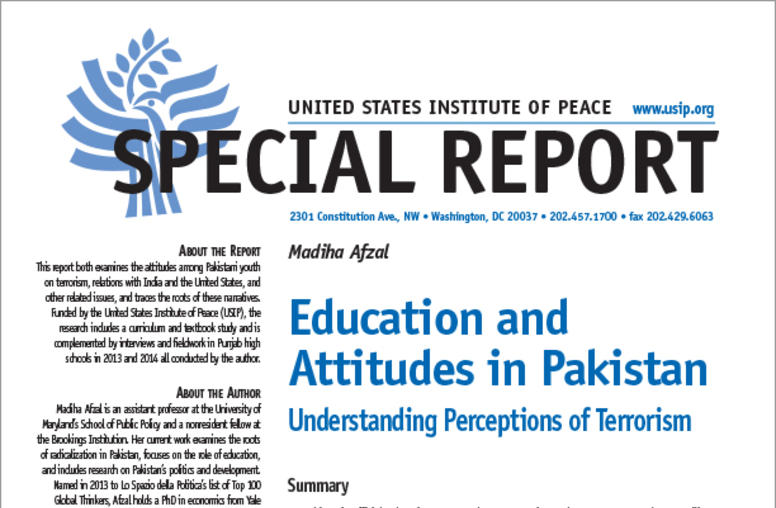
Education and Attitudes in Pakistan
Why do Pakistanis continue to hold a skewed assessment of the Taliban threat to their country? What underlies their attitudes toward the Taliban, the United States, India, and religious minorities? This report draws on author interviews and fieldwork undertaken in Punjab in 2013 and 2014 as well as on a detailed curriculum and textbook study to identify and trace the roots of these attitudes and suggest ways out of the dilemma for Pakistan’s policymakers.
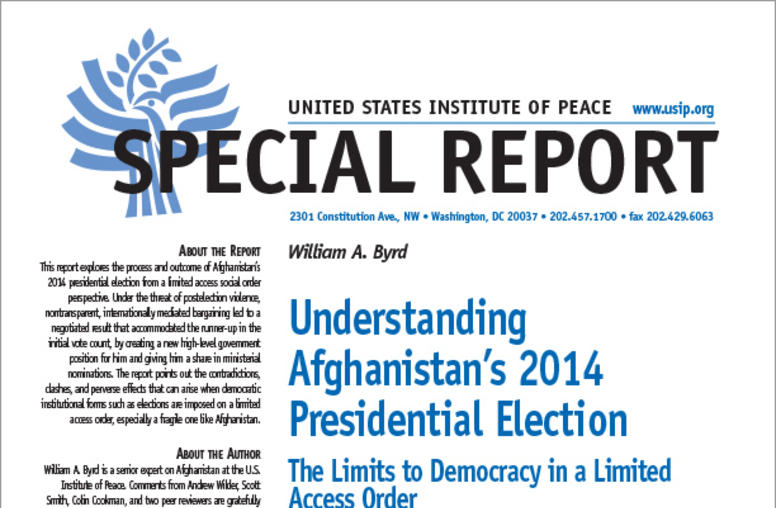
Understanding Afghanistan's 2014 Presidential Election
Afghanistan’s 2014 presidential election did lead to its first peaceful transfer of power. The process, however, was scarcely democratic. This report explores the election and its internationally mediated unity government outcome. Elections—when they can even be held in fragile and conflict-affected situations—tend to be more destabilizing than stabilizing. The overall lesson, as this report makes clear, points to certain critical needs for such countries: a better understanding of inherent i...
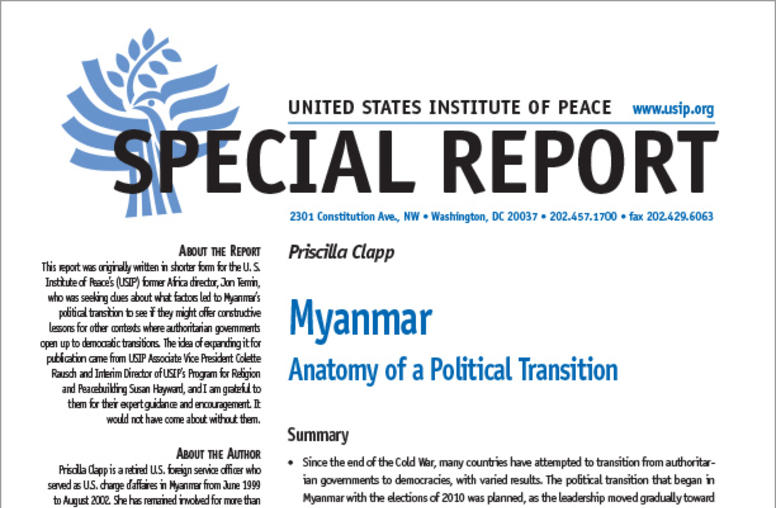
Myanmar
Many countries have attempted to transition from authoritarian governments to democracies, with many false starts. The political transition that began in Myanmar with the elections of 2010 was heavily planned by military leaders to gradually move toward democratization while retaining many of the authoritarian structures of the previous government during the transition. As Myanmar’s success has attracted great interest and support from the international community, this study analyzes the elem...
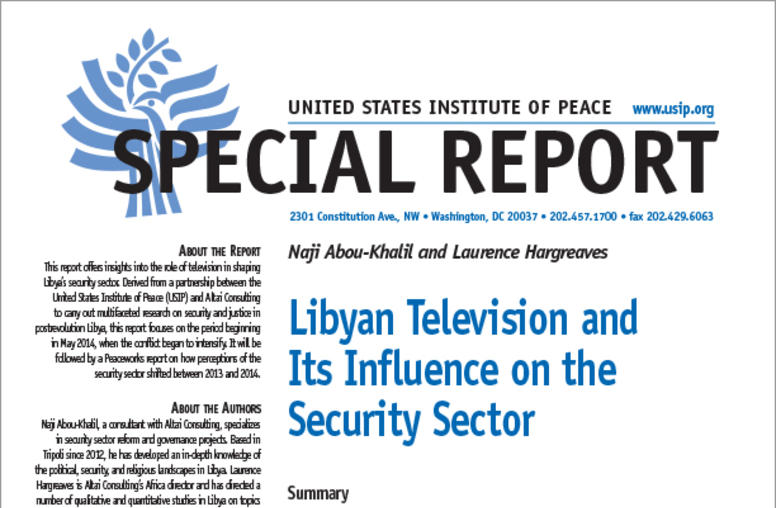
The Role of Media in Shaping Libya's Security Sector Narratives
During and after Libya’s revolution, national media outlets became known and popular for their balanced reporting. The situation in the few years since has changed, however. The security landscape in Libya today is a confusing array of institutional and non-institutional actors each asserting legitimacy. The country is on the brink of full-scale civil war. Its media has become both polarized and a key tool for many security actors. This report looks at three primary television channels to off...
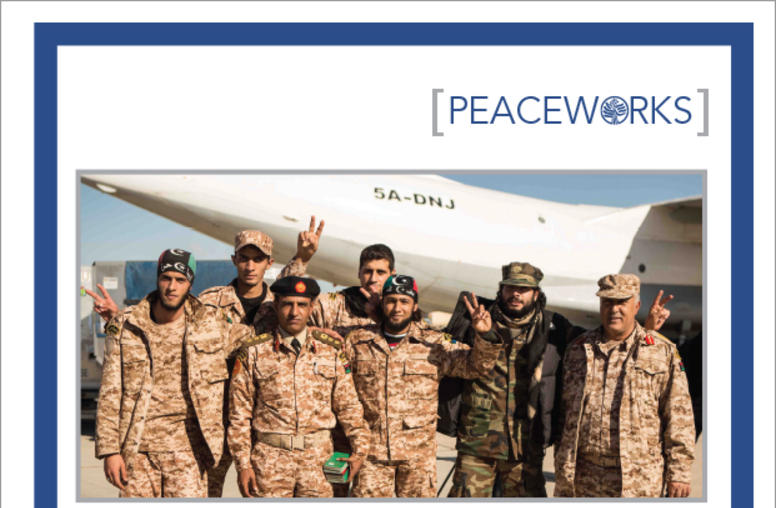
Perceptions of Security in Libya
Three years after the fall of Muammar Gadhafi and his regime, Libya is again on the brink of civil war. Various circumstances underlie this predicament—mistrust between regions, political power struggles, and sporadic and uncoordinated security and justice sector reforms. So that better understanding of the security needs of Libyan citizens today is possible, this report assesses the popular legitimacy of security providers in the country today and identifies their local, religious, and legal...